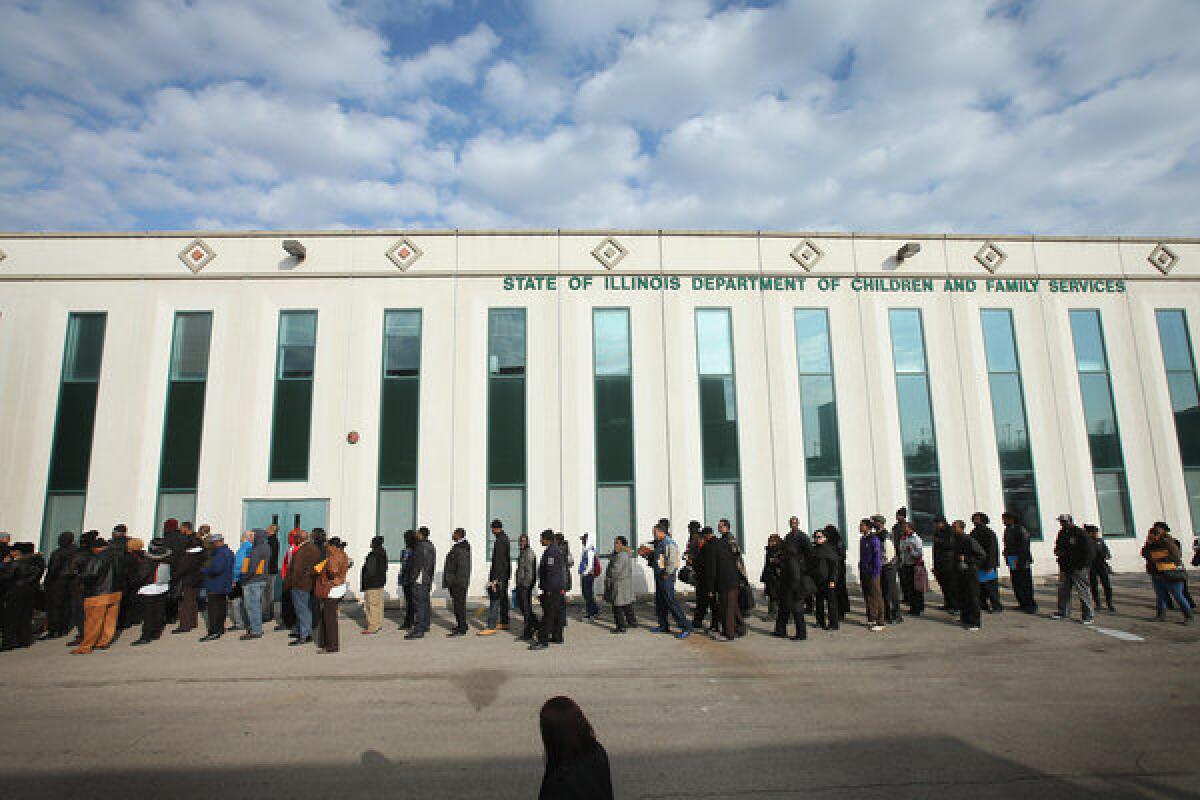Unemployment linked to increased risk of heart attacks

- Share via
As if the lost income weren’t enough, unemployment appears to increase the risk of heart attacks. According to a study published Monday in the journal Archives of Internal Medicine, people who were unemployed, had a history of unemployment, and even those who had short periods without work were all at a higher risk for heart attacks.
Unemployment continues to be a major issue in the United States, with the national unemployment rate at 7.9%. And that leaves out many people who are underemployed or who have stopped looking for a job.
Numerous studies have linked unemployment with health issues, most notably mental health. The new study, conducted by a team at Duke University, is one of the few to study a health outcome that is certain to have occurred after a job loss, ensuring that unemployment occurred prior to the illness and reducing the chances that the health issue -- in this case a heart attack -- was the cause of job loss.
In the study, the Duke researchers examined data from more than 13,000 American adults ages 51 to 75 years who were taking part in the large Health and Retirement Study from 1992 to 2010. The team collected information on employment status every two years. Overall, 7.9% of participants had heart attacks during the study, while 14% were unemployed at baseline, and 69.7% lost a job at least once.
So how was that unemployment related to the likelihood of having a heart attack? The researchers found that being unemployed was associated with a significantly increased risk of heart attack, with such subjects having heart attacks at 1.35 times the rate as people who were not unemployed.
And each time somebody lost a job, their risk went up: People who had lost four jobs during the study had heart attacks at 1.63 times the rate of those who did not lose a job. The researchers also found that the risks were highest in the first year after a job loss. The effects remained after the researchers adjusted for potentially confounding variables, including socioeconomic status.
According to the authors of the study, such increases in risk are similar to the risks caused by smoking and diabetes.
The fact that unemployment impacts health is not new. And in an editorial accompanying the article, William Gallo of the City University of New York argues that “sufficient evidence exists of the negative influence of job loss on health,” but too little is known about why unemployment causes such problems.
“Explorations of these questions, however limited, should mark the beginning of the next period of research.”
Return to the Booster Shots blog.



